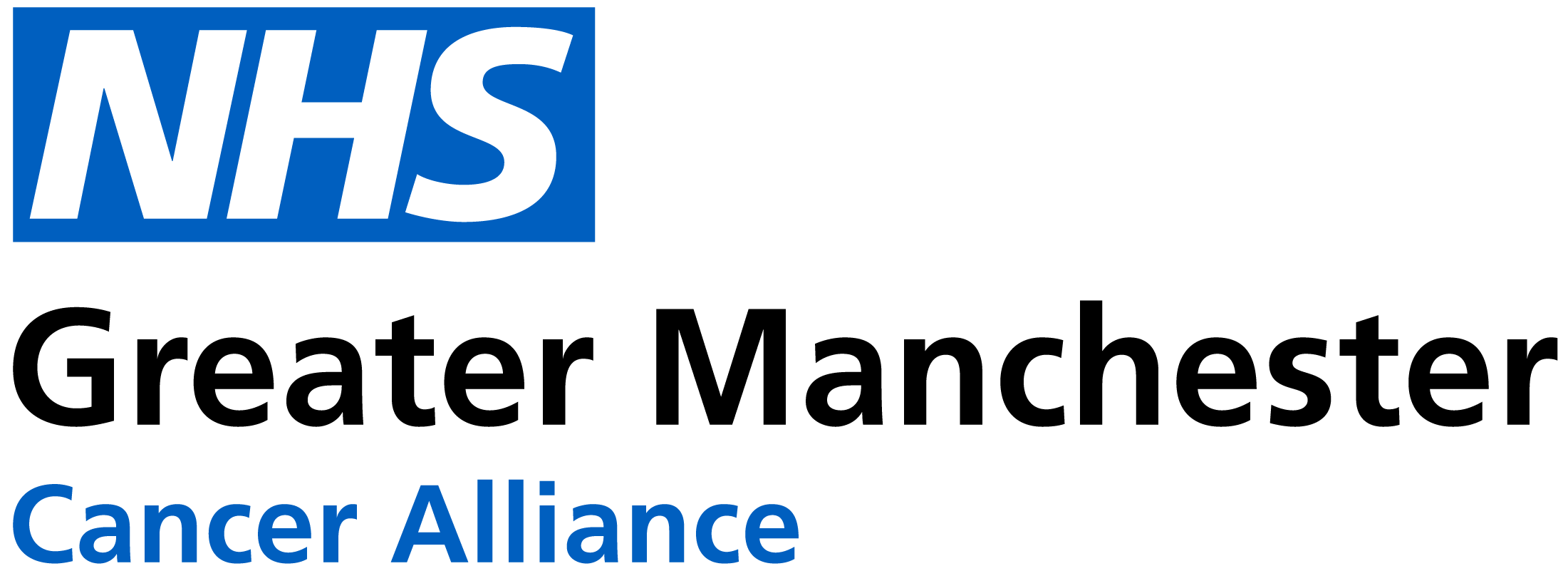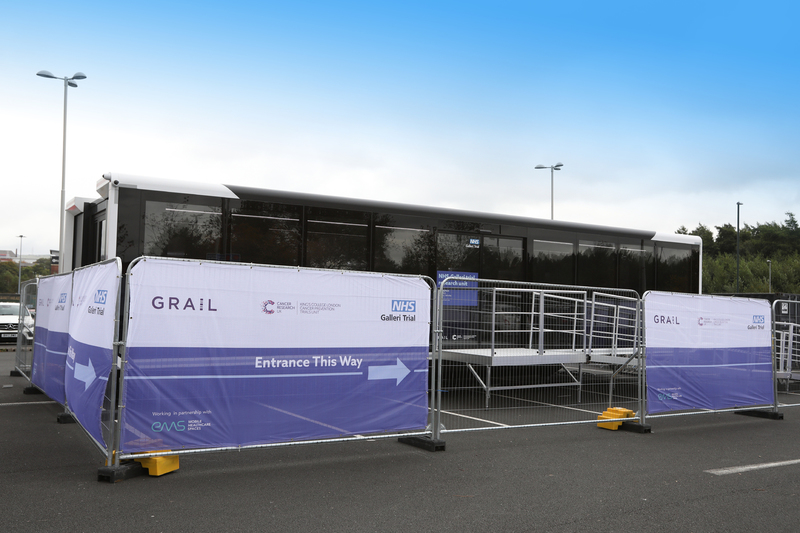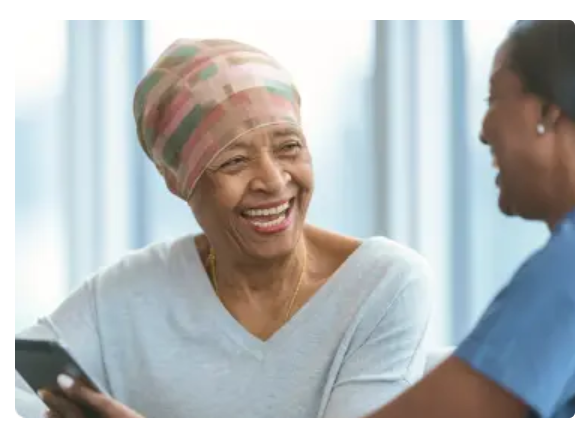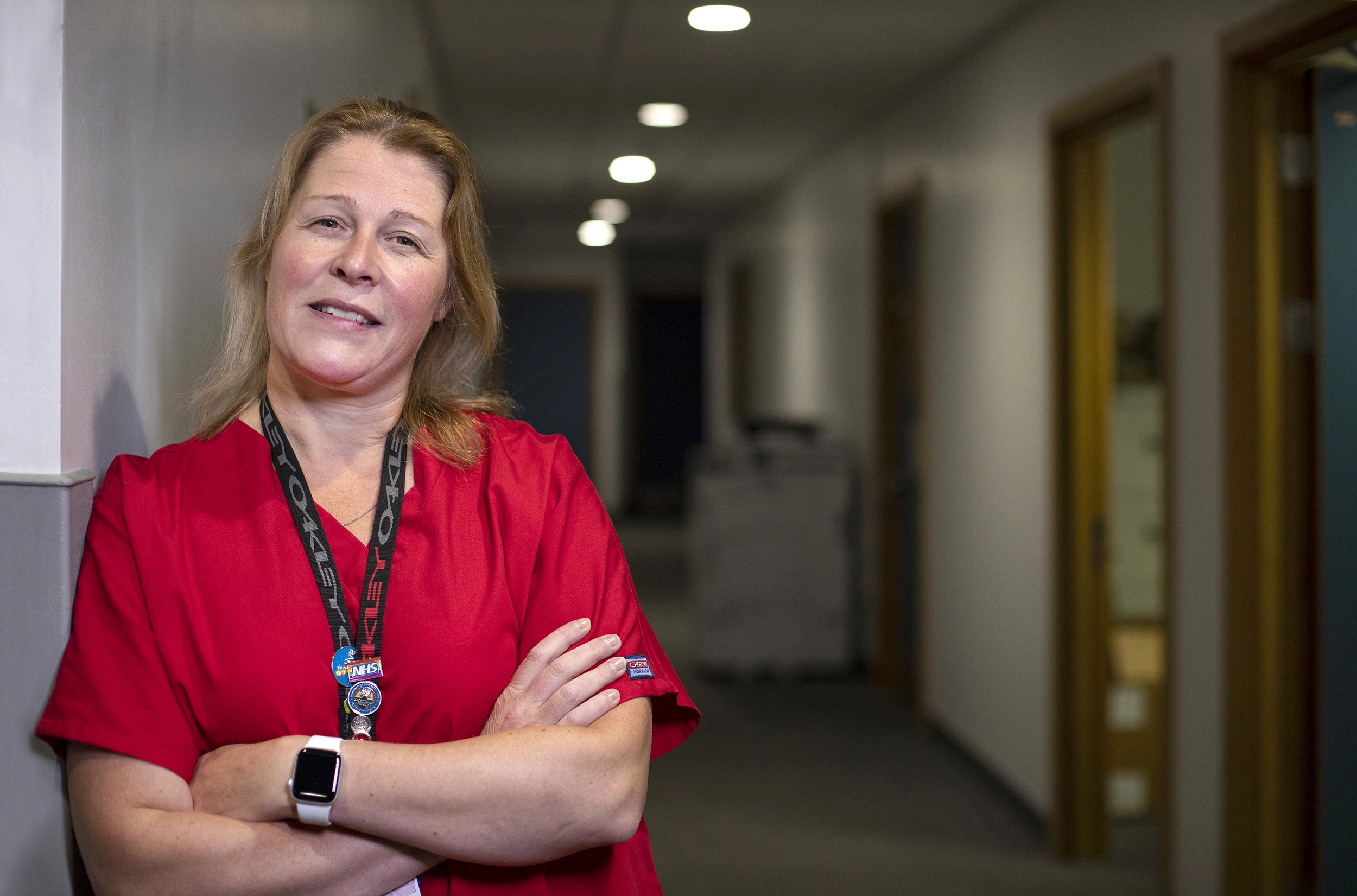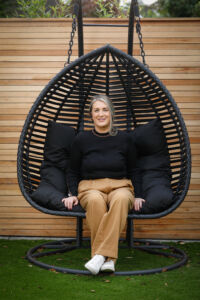
Carina Doveaston, a business development manager, from Wigan, is sharing her experience to raise awareness during Breast Cancer Awareness Month this October.
Carina, 36, from Lowton, Wigan, was diagnosed with an aggressive type of breast cancer – known as triple negative breast cancer – in January 2021.
Carina Doveaston, a mum of one and business development manager, from Wigan
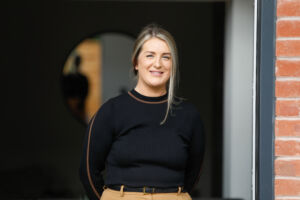 The mum-of-one went to her GP after noticing her nipple was inverted and seeing a prominent swelling under her armpit just before Christmas in 2020.
The mum-of-one went to her GP after noticing her nipple was inverted and seeing a prominent swelling under her armpit just before Christmas in 2020.
She’d previously felt under the weather and extremely tired in October and noticed a rash on her breast which was initially treated with antibiotics.
After going back to her GP, she was referred Wigan’s Royal Albert Edward Infirmary in January 2021 where an examination and mammogram showed she had breast cancer. A biopsy later showed she had stage three triple negative breast cancer – one of the most aggressive types.
Carina had chemotherapy at The Christie Cancer Unit at Wigan at the Royal Albert Edward Infirmary, followed by a mastectomy to remove her right breast and the surrounding lymph nodes in July 2021. She then had radiotherapy at The Christie at Salford. After this Carina also had a mastectomy on her healthy breast to help stack her odds against the cancer returning. She is currently showing no evidence of disease.
Treatment during a pandemic
She said: “It was really hard going through the treatment especially with the pandemic too. After my treatment finished it was difficult because I no longer had a team of nurses giving me a hug when I needed it or regular trips to hospital and it was then I was diagnosed with post-traumatic stress. I had counselling and the sessions really did help. It can still be tough going through the milestones like a year after your diagnosis.”
She used the cold cap treatment through almost all of her treatment which can help to reduce hair loss. Although she did lose 70-80% of her hair it re-grew faster after her chemotherapy.
Sharing her experience
After initially telling her close family and friends, Carina started to tell others about her cancer diagnosis on her social media during her treatment.
She said: “I found it easier to put it out there. I also wanted to let people know that breast cancer can happen to people whatever their age as I wouldn’t want another friend to go through what I have been through. I’ve had messages from friends too to tell me they’ve been and got checked out early.
“I got lots of love and support during my cancer treatment which really does help. Sometimes people don’t know what to say and think they are better not to say anything, rather than put their foot in it, but I really did appreciate the people who came forward with words of encouragement.”
Get to know your breasts
Now Carina, who is back at work, is encouraging women to get to know how to recognise potential symptoms of breast cancer.
She said: “It’s important for all women to be aware of the potential symptoms and understand that breast cancer can affect you in your 20s, 30s and 40s too.
“Breasts are very personal to us so if you feel that something isn’t right, if your breast has changed shape or the nipple is inverted do get it checked out. Life does sometimes get in the way, but you need to make time for your health.”
Clare Garnsey, who is a breast cancer doctor and the Clinical Lead for Breast Cancer at Greater Manchester Cancer Alliance, said:
“It’s very important to get to know how your own breasts look and feel, and know what’s normal for you. If you spot something that is different for you, or something that you are worried about, you should report this to your GP as soon as possible.
“The chances are that it won’t be cancer, but if it is cancer, then catching it early means it will be more treatable.”
Breast cancer – know the symptoms
The first symptom of breast cancer that most women notice is a lump or an area of thickened tissue in their breast.
Most breast lumps are not cancerous, but it’s always best to have them checked by a doctor.
You should see a GP if you notice any of the following:
- a new lump or area of thickened tissue in either breast that was not there before
- a change in the size or shape of one or both breasts
- a bloody or clear discharge of fluid from one of your nipples
- a lump or swelling in either of your armpits
- a change in the skin of either of your breasts, such as puckering or dimpling, a rash or redness
- a rash (like eczema), scaly or itchy skin or redness on or around your nipple
- a change in the appearance of your nipple, such as the nipple becoming sunken into your breast
Breast pain is not usually a symptom of breast cancer.
For more information visit the NHS website.
